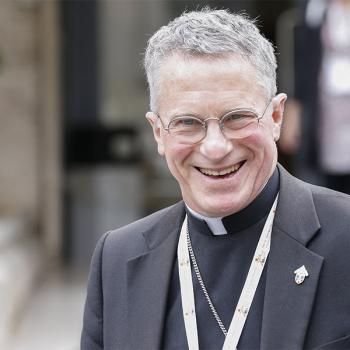Today's atheists have come a long way from the days of Madalyn Murray O'Hair. For those that remember her, O'Hair was the quintessential angry atheist. Her days were filled with combating religion, undermining faith, and doing so with a caustic wit.
More common today are the Branjelina atheists who spend most of their time trying to help themselves and lift up the world through their good works. Still, even with popular role models like Pitt and Jolie, some people are afraid to make a departure from religion. Many Americans, even those who have become disillusioned by their faith, are uncomfortable at the thought of a life without religion. Without a religious framework, where would they find meaning or joy? But there's no need to view this freedom with such trepidation. The possibilities for a meaningful and joyful life free from religion are limitless.
We often hear Christian conservatives like Bill O'Reilly bemoaning that atheists hate Christmas, and it has taken root as a stereotype that assumes atheists are alone and miserable on such holidays. But just because nontheists don't adhere to a particular faith doesn't mean we can't appreciate traditional celebrations. Humanists, atheists, and freethinkers can celebrate Jewish High Holidays, Christian Easter, Pagan Solstices, and other special days with friends and relatives just like everyone else, except nontheists can enjoy them without worrying about adhering to the rules of one dogmatic faith. Humanists are such lovers of holidays, and enjoying the opportunities for family, love, and charity, that we've created a few of our own, like Darwin Day, the National Day of Reason, National Secular Service Day, Freethought Day, and Human Light.
Religion isn't just about holiday cheer, and often emphasizes pain over pleasure. Some Catholics in the Philippines volunteer to be non-lethally crucified on Good Friday. Other Catholics in New Mexico still engage in self-flagellation. But the Catholics have no monopoly on asceticism; there's also the Jihad of radical Islamists, the self-mortification of Kabbalah Jews, the purification ceremonies of Native Americans, and the various fasting rituals required by many faiths. In these teachings, suffering on earth is considered a badge of honor to be sought out and endured. It's sometimes seen as a prerequisite to an afterlife in heaven. But freed from these unnecessary constraints, humanists are able to live lives where such pain and suffering is understandably avoided. Instead, nontheists can pursue lives rich in satisfaction and gratification.
Of course, religion doesn't just emphasize pain, it sometimes demonizes pleasure too. Religious practices around the world today demonstrate just how negative faith-based approaches to sex can be: genital mutilation, forced marriage, and unpunished rape are just three examples. And here at home faith-based views of sex hinder the lives of millions of LGBT Americans and prevent normal sexual exploration for anyone following the rules too closely. Being free from religion means being free from taboos around contraception, same sex relationships, oral and anal sex, sex during menstrual cycles, and sex before marriage. There's no need to suffer pangs of guilt for consensual sex when the alternative is a satisfying, safe, and pleasurable sexual life.
But remember, whether we're enjoying celebrations or seeking sexual pleasures, such freedoms include responsibilities. Humanists derive morality from a combination of knowledge, compassion, and the Golden Rule. In order to seek happiness in this framework we need only to avoid harming others. Indeed, we've found that in order to enjoy the highest happiness we need only to help others. That's a good deal less complicated than consulting ancient texts or divine revelation.
Instead of placing emphasis on the supernatural and afterlife, atheists value the life that is being lived today. Humanists and other freethinkers tend to view life's purpose as the aspiration to benefit society and ourselves, and push humanity to progress toward its highest ideals. Our esoteric efforts toward a better world are closely connected with our commitment to future generations. And closer to home, this is realized in our strong commitment to family and community. Viewing this life as something to be enjoyed rather than a test one is required to pass before arriving in heaven is conducive to a healthy happy life. Emphasizing our present life and the lives to come is far more compelling than an unknowable, unlikely, afterlife.
3/17/2011 4:00:00 AM





